US election 2016: Florida vote pivotal for direction of Republican race
- Published
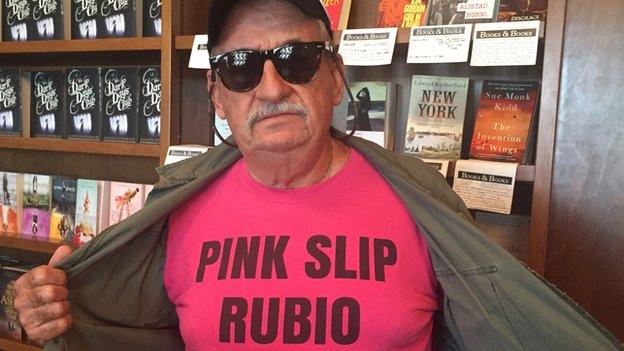
"As it usually does, it comes down to Florida. It always comes down to Florida."
On a balmy Wednesday evening in Hialeah, an impoverished Miami-area town populated by recent Cuban immigrants, Republican presidential candidate Marco Rubio told supporters that their votes in the Florida primary on Tuesday would determine the party's presidential nomination.
The senator is probably right.
Florida was the key to George W Bush's razor-thin victory over Democrat Al Gore in the 2000 general election and has been a electoral battleground ever since. Now the state has become the top prize in this year's Republican nomination campaign, as it will give its entire 99 national convention delegates to whichever candidate carries even the slimmest of pluralities in its primary vote. The state will provide the winner with a significant boost toward the magic total of 1,237 delegates needed to secure the nomination.
Unfortunately for Rubio, it appears increasingly likely that the Florida winner will be Donald Trump. And with Mr Trump's current delegate lead, a victory in Florida coupled with a triumph the same day in Ohio, another winner-take-all state, would mean he only needs to win half of the remaining delegates to ensure he is the Republican standard-bearer in the autumn.
There's worse news, however, for Republicans fearful of having Mr Trump as the face of their party. The fractious Florida campaign is revealing just how hard it will be for them to settle on a strategy to prevent the New Yorker from becoming the nominee.
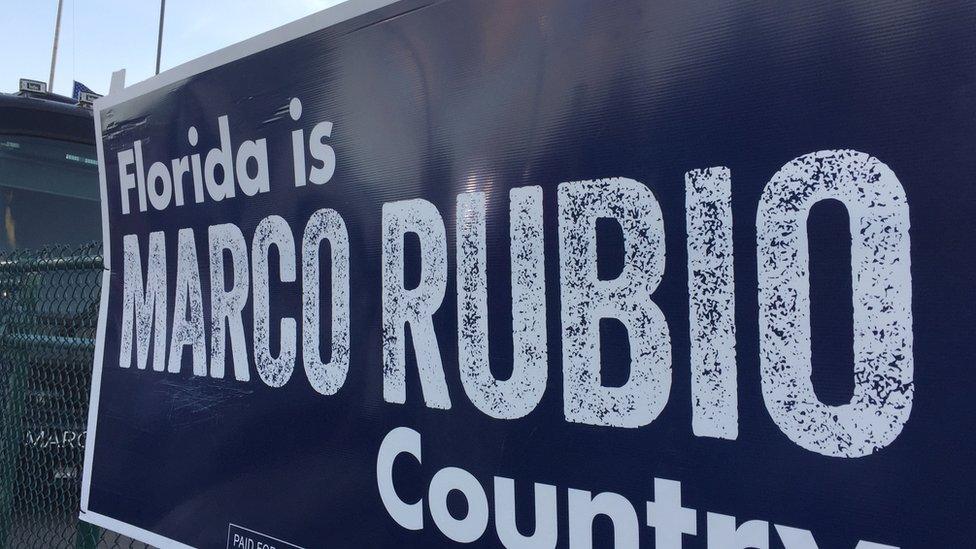
Rubio down, Bush out
This was not the way the race in this state was supposed to turn out.
The primary was expected to be a showdown between two favourite sons - the popular former governor with the famous last name, Jeb Bush, and Mr Rubio, the rising-star freshman senator.
But Mr Bush is out of the race, after a relentless bludgeoning by Mr Trump and a lacklustre campaign that could never turn fundraising prowess into popular support. And Mr Rubio, following a string of disappointing third- and fourth-place finishes in contests across the nation, is just barely hanging on.
For a while it seemed like the Florida senator had recovered from a much-criticised performance in New Hampshire with second-places finishes to Mr Trump in South Carolina and Nevada. He accrued dozens of high-profile endorsements and appeared to be building momentum toward an eventual one-on-one showdown with the leader.
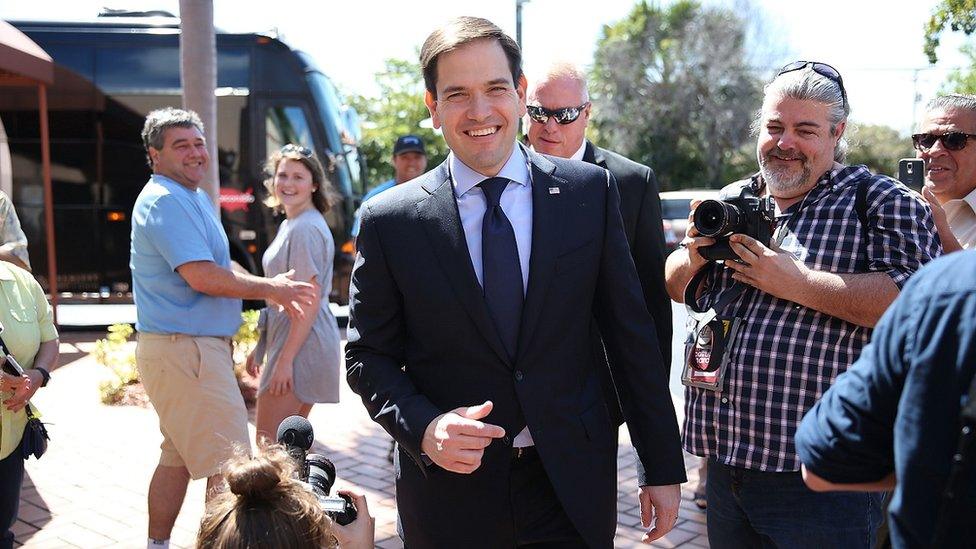
Then Mr Rubio and his campaign team, worried that Mr Trump was pulling away from the field, decided a change of tactics was necessary. He abandoned his aspiration message in favour of an attempt to match Mr Trump's derisive campaign rhetoric. While Mr Rubio snatched some of the media spotlight away from the New York tycoon, it came at the cost of alienating much of his existing support. He was nearly shut out the large slate of states voting on Super Tuesday and performed even worse in subsequent contests. A Puerto Rico primary win was the only bright spot for the man once thought to have an inside track to the nomination.
Mr Rubio took the stage in Hialeah on Wednesday, at a 5,000-seat football stadium with only a few hundred supporters gathered at one end of the field. He did not sound like a candidate confident of victory in his home state.
"If anyone tells you Marco Rubio is dropping out, they're lying to you," he said in response to media reports that his own advisors were counselling him to leave the race.
"Marco, we've got your back," one man shouted.
But even among the senator's backers, there was doubt. Although Mr Rubio gave a positive speech that evening, the spectre of the past few weeks lingered.
"I didn't like some of the jabs he took," said Lucas Lahitou, a Rubio volunteer who moved to the US from Argentina in 2006. "But if things go south for him, we have to acknowledge he did something believing that was the best way to prevent Donald from getting the nomination, for the good of the country."
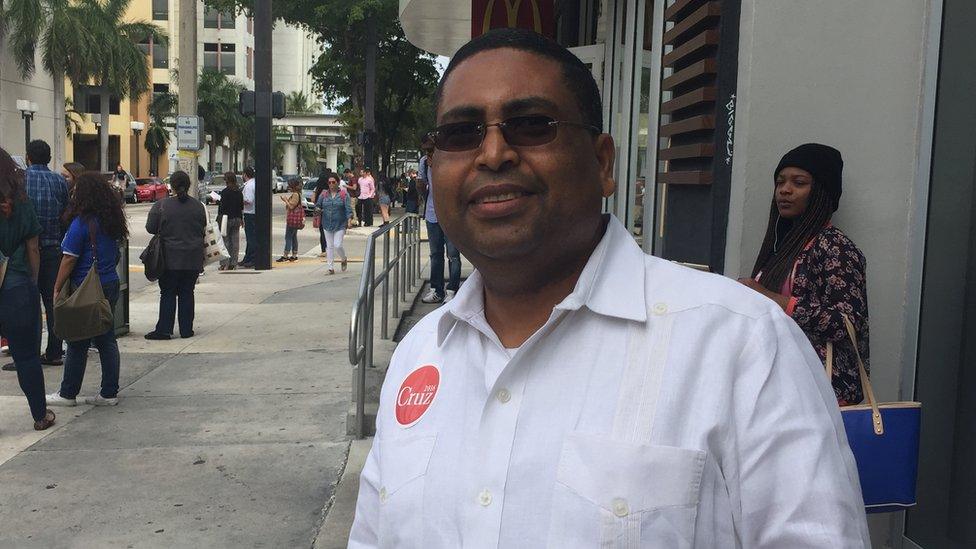
A disunited front
If Mr Rubio launched his attacks as a service to the party, however, his fellow candidates don't seem to have appreciated the effort.
Mitt Romney, the 2012 Republican nominee, recently called on Republican voters to support Mr Rubio in Florida as part of a strategy of unified resistance against the front-runner that focused on backing whichever candidate had the best chance of winning in a particular state. The overall goal was to prevent Mr Trump from accruing enough delegates to secure the nomination, then challenge him at the Republican convention.
Others, like conservative commentator Erick Erickson, have echoed the call, external for anti-Trump unity.
Mr Rubio's fellow candidates either didn't get the memo or have chosen to ignore it so far.
When Mr Rubio suggested that his supporters in Ohio back John Kasich - perhaps hoping for reciprocity from Kasich voters in Florida - a staffer from the Ohio governor's campaign responded with scorn.
"We were going to win Ohio without his help, just as he is going to lose Florida without ours," spokesman John Nichols told, external the Associated Press.
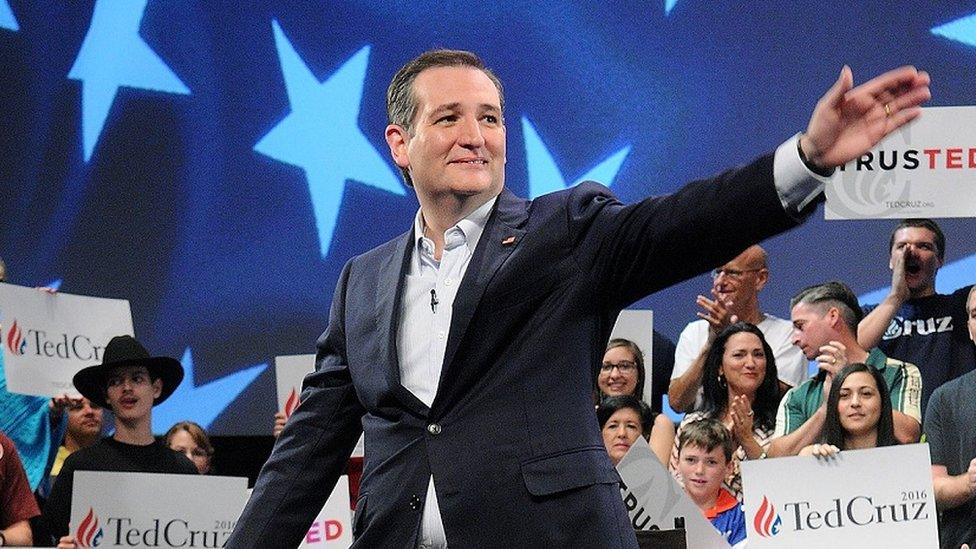
Meanwhile Texas Senator Ted Cruz has been even more direct in his criticism of Mr Rubio, calling for the Floridian to abandon his campaign. He's also matched his words with moves that might sink Mr Rubio in Florida and hasten his political demise.
Mr Cruz recently opened 10 new staff offices across the state, and his supporting committees launched a television advertising blitz there. As the Texan is still a long-shot to win Florida, his move could be aimed at siphoning off Mr Rubio's supporters and delivering a mortal blow to the senator's presidential hopes.
On Wednesday Mr Cruz held a rally in Miami just blocks from where Mr Rubio announced his candidacy last April, and he once again urged the state's voters to unite behind his campaign.
"There are only two candidates this race that have any plausible path of getting to 1,237," Mr Cruz said, as former presidential candidate Carly Fiorina - who had just endorsed the Texan - looked on.
"It's easy to talk about the party coming together, but talk without action, words without action, are empty," Mr Cruz said.
After the rally, Mr Cruz's supporters echoed their man's call for Mr Rubio to throw in the towel.
"If Marco Rubio really wants to make a difference, he can drop out of the race," Alfredo Ortega, who came to the US from Venezuela in 2004 and has worked in Miami-area government, said.
"Marco Rubio is risking his future in politics," he continued. "If he stays in the race to make a point of honour to win Florida, that's one thing. But he knows he has no chance to win. Cruz is the only conservative that can beat Donald Trump."
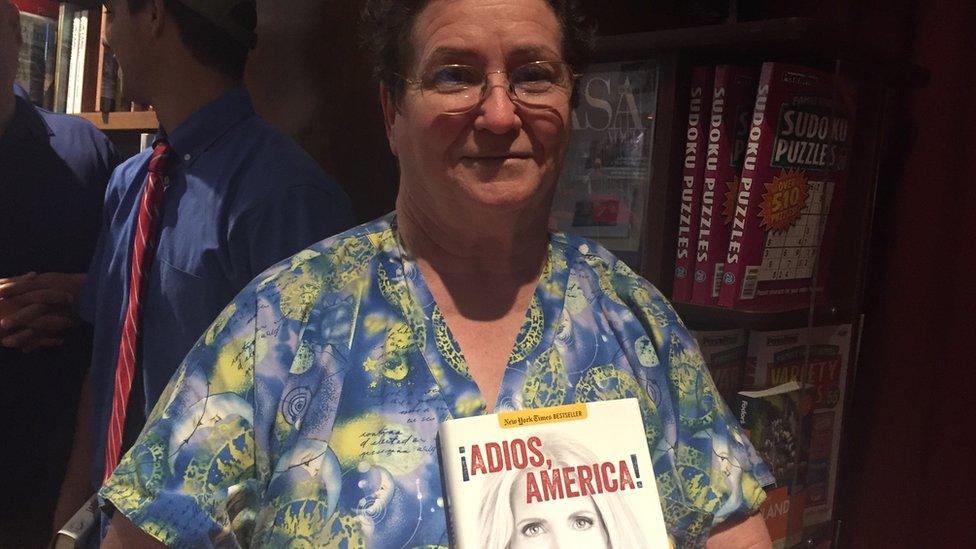
Trump's the one
Meanwhile, the Trump juggernaut continues to roll along unabated.
As the New York mogul's supporters queued up at a book signing for conservative commentator and Trump-backer Ann Coulter in Coral Gables, Florida, on Thursday, they sung their candidates praises - and took swipes at his opponents.
"Donald Trump is very real and very sincere," said Sandra Stone of Boca Raton. "We're tired of being lied to. We're tired of being cheated. The more they try to attack him, the more we love him."
Mr Cruz is "just a little too slick", she said. Mr Rubio is an establishment mouthpiece.
Marco Sokolowski, wearing a "Pink Slip Rubio" t-shirt, was even more blunt in his criticism of the Florida senator.
"Rubio lies about everything," he said, noting that he had volunteered for Mr Rubio when he ran for the Senate in 2010 but became disillusioned with him after he supported immigration reform legislation in Congress.
"Donald Trump says and does what he's going to do. Rubio hasn't done anything."
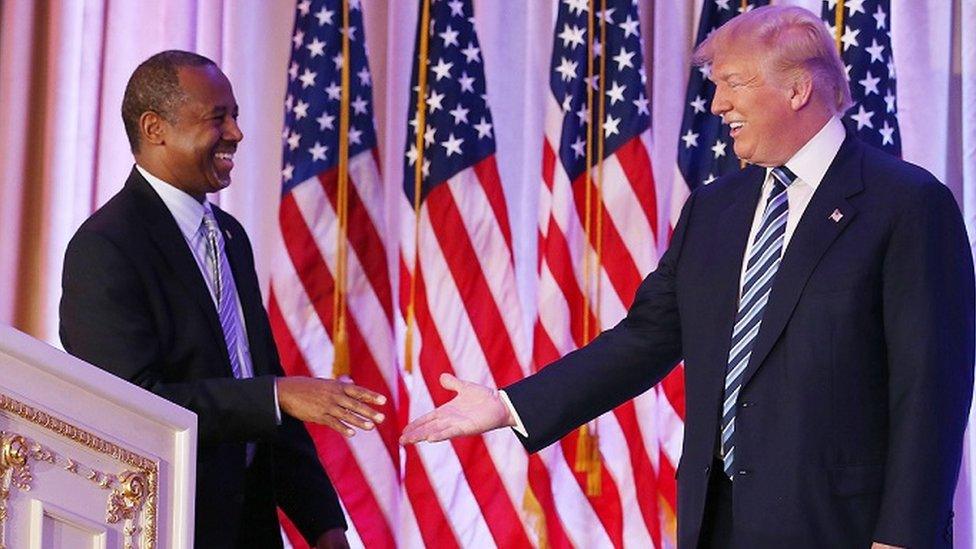
At the end of the event, Coulter said she knew that Mr Trump's anti-immigration rhetoric would catch fire in places like Florida, which is experiencing rapid demographic changes.
"If we could just try this campaign, I knew it would be a success," she said. She said she was surprised at first, however, that the real estate mogul was the man who pulled it off.
"Everything I originally thought made Trump an imperfect vessel for the message - reality TV, boisterous, brash, that New York style, in retrospect I see it's all an advantage," she said. "He's the only one who could have done it."
The following morning, after Mr Trump emerged from a low-key 12th Republican debate largely unassailed by his adversaries, the front-runner took to a flag-bedecked stage at his palatial Mar-a-Lago resort in Palm Beach and unveiled his latest acquisition.
Ben Carson, his former campaign adversary, endorsed Mr Trump, telling the gathered reporters that Donald Trump "is actually a very intelligent man who cares deeply about America".
The pro-Trump, anti-establishment forces within the conservative movement seem to be pulling together almost as quickly as the Trump resistance within the Republican Party is coming apart.